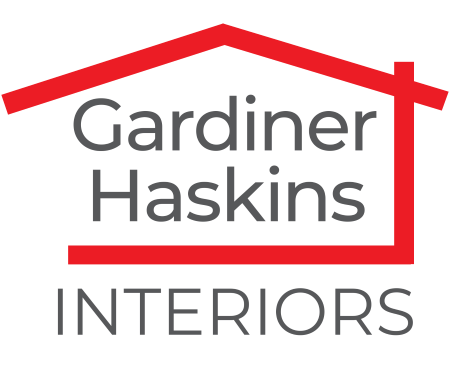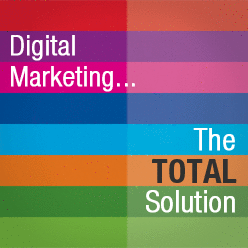In case you missed it see what’s in this section
Let's Talk
Your Total Guide To business
The average person spends around 90.000 hours at work – this is what you should know about jobs
You must avoid burnout and take care of your safety at work and beyond. Depression has begun to settle in increasingly more youngsters, and it's more concerning to adults than ever, as reports show.
COVID-19 accelerated this trend, triggering a 25% increase in the prevalence of depression and anxiety globally. Plus, you can get involved in work-related accidents that leave scars and marks, so you must know how to work efficiently, be less stressed and how to approach an accident in the event one happens when you're on your shift.
Keep reading to learn how to care for yourself while on the job.

You must be wary of workplace accidents
You and your colleagues' workplace safety must be your employer's first concern about his company. Still, unfortunate accidents can happen no matter how serious he is in implementing the required safety measures. You, too, should take care and know that two types of ill-fated outcomes can result from negligence at work.
Spending too much time on the road can lead to accidents. Exposing yourself to contaminated and toxic agents and environments can harm and burn your skin, and slips and falls are hard to avoid when you're in a hurry running down a wet floor that doesn't display the "caution, wet floors" sign. Similarly, explosions can happen if you work with flammable materials, and getting caught or stuck in machinery can lead to losing a finger, a member and so forth. The latter is not uncommon, given that we use our hands for almost every task we accomplish at work, and it shouldn't surprise you how common this accident is and how susceptible you are to injuring your hand. Statistics show that 5,181 injuries occurred between 2020-2021 in the UK to one or more fingers. Therefore, if you should suffer a finger injury or any bodily injuries, you could be eligible to make a claim, according to https://www.personalinjuryclaimsuk.org.uk/claiming-compensation-after-a-finger-injury-at-work. You must keep in mind the following crucial steps you'll need to take:
Get witnesses' support. It'll be helpful for the claim compensation process.
Photograph and obtain CCTV footage. They'll strengthen your case.
Get medical help and keep track of financial losses. You'll need evidence of the losses that your employer's broken duty of care caused you and further medical expenses.
Occupational illnesses are triggered by workplace environments, such as lack of sanitation, exposure to chemicals, poorly implemented safety measures, poor air quality and other hazards. If you believe you suffer from work-related disease, you may claim compensation under the legislation, but remember that this term has broad applications. There are some of the most common occupational diseases work-triggered diseases, according to RIDDOR:
- Carpal tunnel syndrome
- Hand-arm vibration syndrome
- Cramp of the hand or forearm
- Occupational dermatitis
- Occupational asthma
- Tenosynovitis or tendonitis.
Working more efficient means getting through your workday easier
No matter your job, rest assured you want to be more effective at work. The reasons behind this professional goal can vary from wanting to be remarked and have a salary raise to reducing your time working and having longer breaks.
There's more to actual productivity than checking tasks off your to-do list. Luckily, enhanced productiveness only requires a few adjustments, like the following tips.
Set smart goals
Checklists keep you organised, but a short one will help you see the bigger picture and will remove the feelings of overwhelm that long to-do lists give you. It's best to set three to five essential items to accomplish in a workday, regardless of your domain. For example, "I'll close the deal, I'll call those clients, I'll get these supplies". Too many remarks can give headaches; you can always add tasks if you finish your work too early.
Keep yourself organised
A manageable task list translates as being organised, but that isn't enough. Trying to be organised at work will also help you in your personal life. It would be best to prioritise every aspect of your life, not only at work, and keep focus to complete your tasks on time. For example, decluttering your wardrobe and planning your work outfits a night before will reduce the time you spend getting ready. Consider the following tips that organise your work life:
Track progress. This allows you to see the areas that need to be improved. If there are tasks that you feel require more time than they should, time-keeping applications help you determine which specific tasks complicate you.
Have an agenda. This is an excellent tool for evaluating your productivity. Write down specific events and details to be aware of the due dates you have coming up in your schedule, and choose agendas with sections for every day.
Limit distractions. Distractions take significant time and focus when you're at work and lower your productivity. Removing them allows you to concentrate on assignments for a longer time. A good starting point would be to keep your phone out of your sight, turn useless phone notifications off and eat when you're hungry so you don't constantly think of cravings and the like.
Keep a clean environment. It helps you find materials and supplies more efficiently, making your workflow more consistent. A clean environment means you put items back where they belong and assign a thought-through specific spot for each item.
Some aspects can make your job feel less like a burden
Not everyone is lucky enough to go to the job of their dreams all their life; some find their career path later in life. Don't freak out if you're long from deciding on a career. Instead, work hard to figure out how you can monetise what you like doing. And in the meantime, while you're at work, why don't you try to work a little on your mindset and do some lovely things to get you through your workday more easily?
From getting enough sleep the day before and exercising in the morning to drinking coffee from your favourite mug and trying to smile more at clients – every small detail can make a positive change.
Weather in Bristol
Listings

















